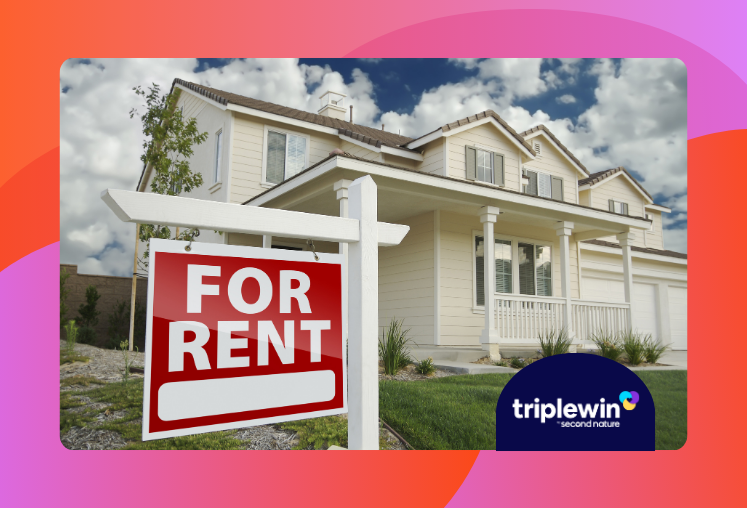Property management inspection software is designed to simplify and streamline the process of conducting property inspections.
Typical features of this property management software include customizable inspection templates, mobile compatibility, photo and video capture, scheduling capabilities, and report generation functionality.
More broadly, inspection software is an important tool for establishing "Triple Win" conditions that benefit residents, property managers, and investors alike.
That's because it improves overall operational efficiency and promotes proactive/preventative maintenance, while also helping to improve transparency. In a nutshell, it’s an indispensable tool for property management companies looking to deliver high-quality services and maintain property value.
Today, we’ll provide an overview of some of the best property management inspection software currently available.
A note on language:
Developers of property management inspection software often refer to "tenants” in their workflows, and for the sake of cohesion, we’ll be picking up on that term in this software review. But here at Second Nature we regularly see the incredible work property managers do day in and day out to make renters feel like they’re so much more than just a tenant – they’re residents. Making renters feel like residents isn’t just a philosophy, it’s also a business decision that encourages them to invest in care for their home and add value to the property. This is why, at Second Nature, we prefer to call renters “residents.” Like you, we think of them as people first – making your property their home.
Related: Best Single Family Property Management Software
Our Criteria for Choosing the Best Property Management Inspection Software
The inspection solutions on this list were selected from top-ranked inspection software on sites such as Capterra and G2, as well as sites devoted to property management solutions.
Note that all inspection tools come with pros, cons, and distinctive features. In today’s overview, we’ll confine ourselves to outlining core features, as well as positioning and pricing.
However, for true apples-to-apples comparisons of property management inspection software, you should evaluate its performance in the context of real-life requirements and conditions. In particular, focus on the following aspects in your assessments:
- Workflow templatization
Workflow templatization in property management inspection software refers to the process of creating templated automations that sequence common inspection tasks and steps. Essentially a user-friendly "smart inspection checklist," these workflow templates reduce the likelihood of inspection oversights or errors when assessing property conditions. They can include areas and elements to focus on during the inspection process, as well as evaluation criteria. Ideally, users can customize workflow templates as required.
- Ease of tenant communication
Features that focus on ease of communication are central to improving the resident experience, as they streamline communication, save time, and enhance the overall process for both parties. Examples might range in complexity from simple direct messaging capabilities to automated translation features.
- How fast it is to complete an inspection
While workflow templates can help make inspections more efficient, other factors also considerably impact overall process optimization, including features like automatic appointment scheduling, the extent of offline data access, the degree to which report generation is automated, and more.
- Inspection report readability
Readability is key to creating transparent communications and positive overall experiences for everyone involved in the process. Different factors include the general layout and formatting of property inspection reports and inspection data, clarity and concision of language, and accessibility considerations that promote inclusivity for any reader.
- Customization options
No one size fits all out of the box. That’s why inspection software ideally allows user to tailor the app to their specific requirements. Customization capabilities might refer to branding options, changes to the user interface, reporting format, workflow triggers, and more.
- Ease of syncing between mobile and desktop
Not all server capabilities are created equal, which is why it can be helpful to evaluate whether or not information can be seamlessly accessed, updated, and shared across the software’s mobile app and desktop platform. Ultimately, seamless syncing enables better property management practices. Areas to consider include data update latency, offline functionality, consistency of feature accessibility across platforms, security of data transfer, and conflict resolution in case of simultaneous data changes.
- Value-add services
In the context of property management inspection software, "value-add services" refer to any additional services that complement the core inspection capabilities of the software. These services can be offered by the software vendors themselves, or via third-party partnerships. Examples might include yard services associated with HOA compliance, pet screening, or Second Nature’s very own air filter delivery service.
Best Property Management Inspection Software
1. zInspector
Billed as “the most powerful and affordable property inspection toolkit in the market,” zInspector is designed as a collaborative field-to-office solution for the property management, real estate, and construction trades.
Features include the option to upload unlimited date- and time-stamped photos and videos, offline inspection capabilities, and unlimited options for customizing templates.
zInspector also provides a number of tenant-directed features, including move-in/move-out inspections as well as periodic and renewal inspections, and remote tenant signing.
Property inspection companies can brand zInspector capabilities within their own app, or simply customize zInspector with their logo and color palettes.
Featured zInspector integrations include AppFolio, Rent Manager, Rentvine, PropertyWare, Rentec Direct, and Google Drive.
Pricing ranges from free (for up to 5 doors) to the “Max” plan at $110 per month. 10% discounts are provided for annual subscriptions.
According to users on G2.com, the zInspector property inspection app is “super easy to learn and use,” with “thorough options for evaluating all our units upon turnover, from our smallest and most basic efficiencies to massive 6-bedroom single-family homes.”
2. RentCheck
RentCheck is a popular solution for the scattered site property management market. It’s designed to help save time for property management teams by eliminating the need for in-person inspections. In that vein, the mobile app version (available in Android and iOS versions) allows residents to complete inspections (move-in and move-out as well as periodic) using their mobile devices, without having to coordinate with a property manager.
Features of the software include the ability for property managers to customize home inspections, set reminders, generate reports, and compare new and existing reports side-by-side.
Pricing options range from a free version for up to 10 doors to an enterprise tier that includes advanced API and customization features.
Per Capterra, RentCheck scores extremely well (4.7 out of 5) for ease of use, value for money, and customer service.
3. HappyCo
HappyCo is more fairly characterized as a platform rather than an inspection software solution. It’s billed as a “real-time multifamily operations platform” that aims to help property owners and managers unlock more accurate valuations, better returns, and higher property value.
The function of its Happy Property suite is to streamline leasing, renewal, and maintenance tasks, and this includes core inspection functionality, including scheduling, notifications, and work order generation.
It integrates with several other technologies, including AppFolio, MRI, RealPage, Rent Manager, and Yardi.
Pricing is determined based on a consultative process with the HappyCo team.
Reviewers on G2.com call out its simplicity and ease of use.
4. Onsight PROS
OnSight PROS is an in-person service for property managers, landlords, and insurance companies. However, they leverage an app to streamline the inspection process.
Different types of inspections include move-in/move-out (MIMO) inspections, periodic inspections, acquisition inspections, and exterior inspections (roof, gutters, landscaping, and fencing).
Inspection reports can be customized and branded as needed.
The service coverage area is nationwide, and pricing for the service is determined based on a consultative process with the OnSight PROS team.
5. SnapInspect
Designed for a wide range of markets, including multifamily, residential, commercial, vacation rentals, and student housing, SnapInspect incorporates features such as video recording, custom reports, and custom property inspector workflows.
A free trial of the software is available, and multifamily pricing starts at $199 per month, which includes iOS and Android apps, Google and Dropbox sync, report customization, and scheduling & automation options.
SnapInspect reviews on G2 describe SnapInspect’s customer service as “above and beyond,” and refer to the app’s user-friendliness.
Property Management Inspection Software by Second Nature
Inspection software by Second Nature is currently in the works! As always, our goal is to create an experience that will benefit property management companies, residents, and investors alike.
Drop us a line if you’d like to be among the first to learn about our upcoming release - or take a tour of our Resident Benefits Package to explore the Triple Win experience we’re offering you right now.
Topics:




